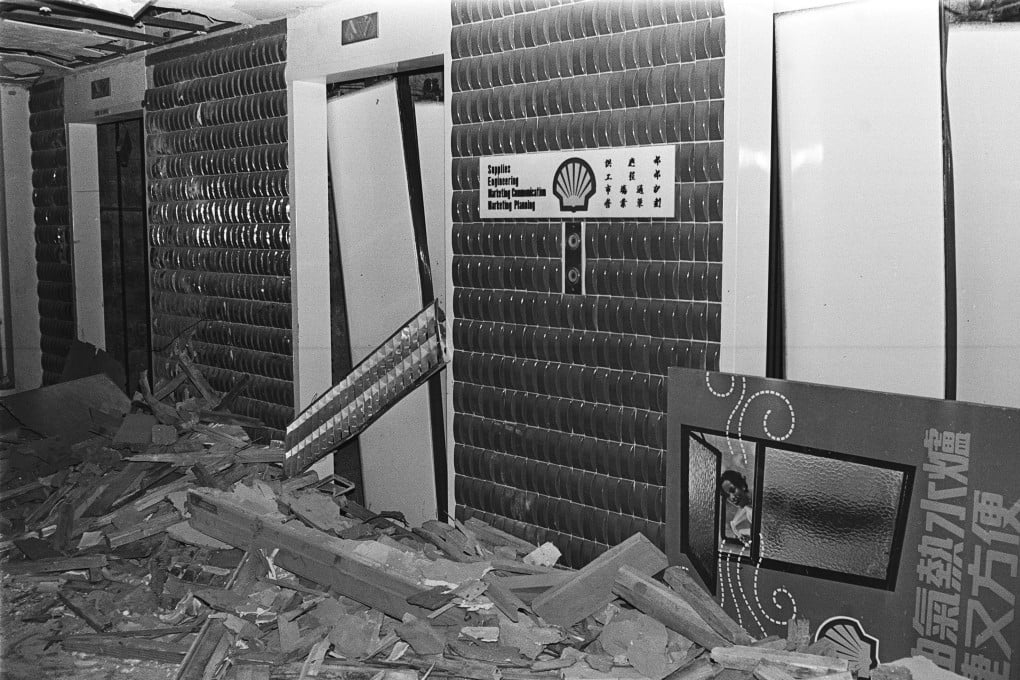When a bomb-laying blackmailer shook Hong Kong
- In 1981, a bomb exploded at a Shell oil company, injuring the office messenger, whose tooth and tie were found nearby
- A second bomb injured a pedestrian before the bomber, a former PLA soldier, was caught and sentenced to 15 years behind bars

“Bomb blast stuns Central,” ran a South China Morning Post headline on April 1, 1981.
The explosion “ripped through the 16th floor of the 17-storey building shortly after a hand-delivered note demanding $500,000 was reportedly received” at the Shell oil company’s headquarters, injuring 22-year-old “office messenger” Chan Kwok-wai.
“A tooth, his tie, broken spectacles and a fountain pen” were found near the spot where Chan was flung by the blast.
The explosion followed a 14-month spate of bombings “and few clues as to which individuals or groups are responsible”, with the most recent incident occurring just a week before the Shell company was targeted, the Post reported.
“A theory rapidly gaining ground in some quarters is that gangs of well-disciplined illegal immigrants from China are behind some of the latest incidents of reported bomb extortion cases.”
“Last month, pigeons were used as couriers for sending extortion notes with instructions to the company demanding that the money be tied to the birds’ feet”
On August 19, a pedestrian was injured in an explosion at the Shell oil depot in North Point. “Shell appears to be targeted for acts of terrorism,” reported the Post on August 21. “Two months after the March attack, bomb threats were received by several of the company’s branches in Kowloon and the New Territories.”